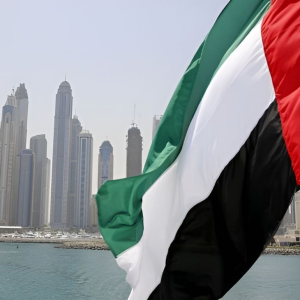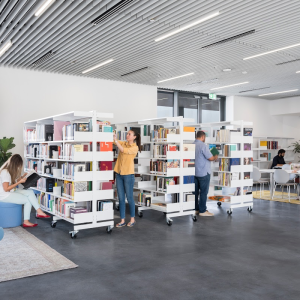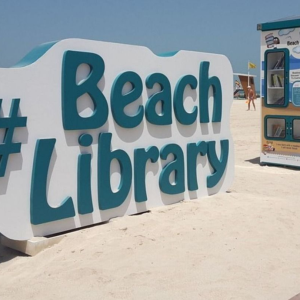The UAE has long been a global leader in embracing innovation and technology. From skyscrapers that touch the clouds to smart cities that redefine urban living, the nation is consistently ahead of the curve. Now, the spotlight is on the smart home appliances market, which is projected to double by 2031. This growth signals an exciting era for homeowners, tech enthusiasts, and businesses alike.
Growing Popularity of Smart Home Technology
Smart home appliances have become more than a luxury; they are now a symbol of convenience, efficiency, and modern living. Devices such as smart refrigerators, air conditioners, lighting systems, security cameras, and voice-activated assistants are gaining widespread adoption across the UAE. Homeowners are drawn to these products for their ability to save energy, enhance security, and provide seamless integration with other digital platforms.
The desire for connected living is also fueled by rising awareness about energy efficiency and sustainability. Many smart appliances now come with features that monitor and reduce energy consumption, allowing residents to not only enjoy convenience but also lower utility bills. This makes smart home technology appealing not only to affluent households but also to middle-income families looking for cost-effective solutions.

Technological Advancements Driving Growth
The rapid growth of the UAE smart home appliances market can be attributed to significant technological advancements. Internet of Things (IoT) technology has revolutionized how household devices interact with each other and with users. Artificial intelligence (AI) integration allows appliances to learn user behavior, anticipate needs, and offer personalized experiences.
For instance, smart refrigerators can now track grocery usage, suggest recipes, and even place orders online. Smart washing machines adjust water usage based on load size, and intelligent lighting systems automatically adapt brightness based on the time of day. These innovations are making homes more intuitive, efficient, and user-friendly, driving demand across the region.

Government Support and Smart City Initiatives
Government initiatives in the UAE play a crucial role in the market’s growth. The nation’s vision of becoming a global hub for smart cities aligns perfectly with the expansion of smart home technology. Investments in digital infrastructure, IoT networks, and AI research create a fertile environment for innovation.
Programs aimed at enhancing sustainability and energy efficiency also encourage the adoption of smart appliances. Subsidies, tax incentives, and awareness campaigns promote the integration of these technologies into homes. By supporting both manufacturers and consumers, the government ensures a robust ecosystem for the smart home appliances market.
Consumer Trends and Preferences
The modern UAE consumer is tech-savvy, lifestyle-focused, and keen on convenience. They prefer products that offer control through smartphones or voice commands and are compatible with multiple platforms. The rise of e-commerce has also made it easier for consumers to explore a wide range of smart home products from international brands without leaving their homes.
Millennials and younger generations are particularly enthusiastic about smart homes. They value efficiency, sustainability, and integration with digital assistants like Alexa or Google Home. This demographic trend is expected to drive a significant portion of the market growth, with more families upgrading their living spaces with connected devices.
Market Segmentation and Opportunities
The UAE smart home appliances market can be segmented into various categories including smart kitchen appliances, smart climate control, home security systems, and entertainment solutions. Among these, smart security devices and energy-efficient appliances are expected to witness the fastest growth.
Opportunities for growth are also emerging in customization and integration services. Companies offering seamless installation, remote monitoring, and maintenance services are likely to gain a competitive edge. Additionally, collaboration with local tech firms and startups can accelerate innovation, leading to more advanced and affordable smart home solutions.
Challenges and Industry Outlook
While the market potential is immense, certain challenges remain. High initial costs of smart appliances can be a barrier for some consumers. Concerns over data privacy and cybersecurity also need to be addressed to build trust. Manufacturers and service providers must focus on affordability, reliability, and security to sustain long-term growth.
Despite these challenges, the outlook for the UAE smart home appliances market is overwhelmingly positive. The combination of technological innovation, supportive government policies, and evolving consumer preferences ensures continued expansion. By 2031, the market is expected to double, redefining the concept of modern living in the UAE.
Conclusion
The UAE smart home appliances market is on the cusp of a remarkable transformation. Rapid technological advancements, strong government support, and a tech-savvy population are driving unprecedented growth. Homeowners can expect smarter, more efficient, and more connected living environments, while businesses and startups have ample opportunities to innovate and expand. By 2031, the UAE’s embrace of smart home technology will not only double the market size but also redefine comfort, convenience, and sustainability in everyday life.
Do follow UAE Stories on Instagram
Read Next – Japan’s Leading Web3 Startups Join Abu Dhabi’s Hub71 for Innovation












